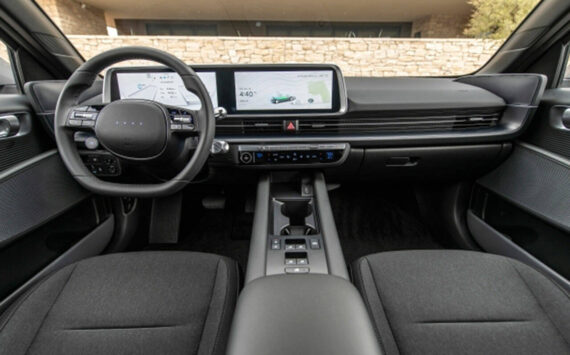By Morf Morford
Tacoma Daily Index
President Nixon took us off the gold standard in 1972.
Runaway inflation and collapse of our currency were just a few of the dire expectations.
We have certainly seen inflation, but how much of it has been tied to our departure from the gold standard is still subject to interpretation.
What was not even remotely imagined was the introduction and use of currencies that had nothing to do with gold, silver or any stable “real” value.
The gold standard was based on the assumption that a stable economy had a store of gold to “back up” its currency – a paper dollar, for example, was represented by a dollar value of gold securely held somewhere.
An argument could be made that credit, and then debit cards, made gold, or any “standard”, even cash, irrelevant.
How would you describe your ratio of cash versus credit/debit card use?
I probably spend fifty dollars on my card for every dollar I spend in cash. And that does not count online purchases.
And I go for fairly long stretches – a week or more – where I have – and have no use for – actual cash.
Our grandparents would be horrified – and perhaps rightly so – at our loss of the appreciation of actual money.
And they would be even more horrified at the even more abstracted world of cyber currencies.
To put it mildly, we’ve gone a long way from the literal silver and gold, or even copper, coins from the mythical past.
In the vintage pirate days, coinage had to hold intrinsic value (a given weight of copper, silver or gold for example) and had to be internationally recognized – like the fabled Spanish “pieces of eight” (it earned the name because the (gold or silver) coin was scored and could (relatively) easily be broken into up to eight pieces for smaller value transactions).
When surveyed, and asked what aspect of modern life they would most want to get rid of, most Millennials said pennies. (1*) But that generation is not a huge fan of cash in any form.
In fact cash is on a worldwide decline – in Britain 3% of transactions are cash based. In the USA about 10% of transactions involve actual currency. (2*)
You might assume that one reason to avoid cash is because it is dirty – literally covered with germs – even disease. Yes, it is, but oddly enough, credit and debit cards aren’t that much cleaner. (3*)
You have a bit more control over your cards, but we hand them over to people who handle hundreds of them – and all kinds of currency and coins all day. And who would think of washing a credit or debit card?
https://www.consumercredit.com/financial-education/infographics/infographic-cash-vs-card
Cash is the ultimate “You don’t know where it’s been” commodity handled by dozens, if not hundreds of people in any given day.
Five dollar bills tens to be the dirtiest, while hundred dollar bills tend to be the cleanest.
When it comes to coins, dimes tend to be the dirtiest and quarters tend to be the cleanest.
Oddly enough, there are about as many hundred dollar bills in circulation as one dollar bills; 11.5 billion hundreds and 11.7 billion one dollar bills.
That compares to about 2.8 billion five dollar bills and 8.9 billion twenty dollar bills in circulation.
The average one dollar bill lasts about six years while the average hundred lasts about fifteen years.
Ten dollar bills must get the most use – the average ten only lasts four and a half years.
Most coins, as you might expect, last far longer, most of them about thirty years.
One of the ironies of cash is that, in most cases, the wealthier one is, the less likely they are to carry cash and the poorer one is, the more likely they are to have cash on them.
President Reagan was well-known for not carrying cash. Queen Elizabeth II only carries cash on Sundays (https://www.popsugar.com/celebrity/Queen-Elizabeth-II-Carries-Cash-Sundays-38615767).
Cash is useful, if not essential, for some purposes, like garage sales, farmers markets or informal exchanges. Cards, for better or worse, keep a record of every transaction.
According to Global Cash Index 24% of Americans use cash for all purchases. In Mexico, 90% of everyday consumer transactions are by cash.
About 80% of Americans use cards on a regular basis.
I don’t know about anyone else, but I am far more careful about my spending when I use cash and far less prudent when I use my cards.
There is something tangible about actually handling money as opposed to swiping a card. This is reflected by the amount spent in each transaction; $22 is the average value of a cash transaction while $112 is the average for a card (or other non-cash) transaction.
Cryptocurrencies take us further and further from the world of cash.
When Facebook offers its own currency, you know that we entered a surreal marketplace. (4*)
We may not know where our money goes, but at least we can keep our hands clean.
(1*) Canada stopped making them in 2012, but banks will still take them.
(3*) https://lendedu.com/blog/dirty-money-credit-cards/
(4*) You can see details on Libra here – https://techcrunch.com/2019/06/18/facebook-libra/








